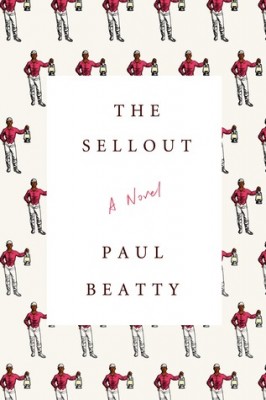
Satire can, without doubt, be the most effective style of writing for drawing attention to political problems that are, objectively, absurd. Of course, the problem is in treading that fine line between taking your satire a step too far, thus allowing your true subject to distance himself* from it, and making it too subtle, thus risking your audience missing the point altogether. It’s not an easy balance to find; for an example of this difficulty, one need look no further than the most famous satire in history, Swift’s essay “A Modest Proposal”, following the publication of which many a rich plutocrat expressed unironic moral outrage at the very idea of eating babies.
The central premise of The Sellout, at least as I read it, is that racism in America is so widespread and toxic that black kids would be better off if their neighbourhoods were re-segregated. It’s safe to say that Beatty is not erring on the side of subtlety here. As a satire, it gets its point across. It’s clearly absurd. However, while a lot of time is spent on that absurdism, and on the overt racism of the past, there’s very little attention paid to the details of present-day racism. We see some micro-aggressions, and get a glimpse of clearly privileged white people crying reverse racism, but the examples that could have been trotted out – like the disparities in arrest, wealth, and life expectancy statistics – don’t really make it to the foreground. In fact, there’s a fairly hilarious anecdote about the protagonist’s father going out looking for overt racism in Mississippi and finding some surprisingly enlightened rednecks. So obvious as the satire might be, I’m not sure it prepares its ground as well as it could have.
On the other hand, what the shit do I know? I’ve never been on the wrong side of any of this stuff. It’s not out of the question that I missed the point entirely. And a lot of the book is interested less in overcoming white hostility and more in building black community, thus changing the focus of the conversation, which is fair enough. Political correctness is also in the cross-hairs, in the form of an associate of the protagonist’s father who obsessively publishes “updated” versions of classic American literature, so as to heroise the black characters formerly relegated to sidekick and comic relief roles. There’s a lot going on.
I didn’t love this novel, though I know a lot of very smart people did, which makes me nervous. It’s a novel of ideas, and even though there’s a plot, it felt loose-limbed and plodding, not like the sharp fast-moving plots that I crave as a reader (which is why, having exercised my brain, I’m currently back reading John Le Carre and flipping a silent bird at my Arts degree). These are personal matters. I wanted to love it, and I think it has plenty to recommend it to a reader more deserving of its merits than I.
*I was going to say “him- or herself”, but let’s be real. Since the death of Thatcher, Sarah Palin is really the only good example here.
Trigger warnings: child abuse scenes, animal cruelty, rape references, domestic violence references, police brutality